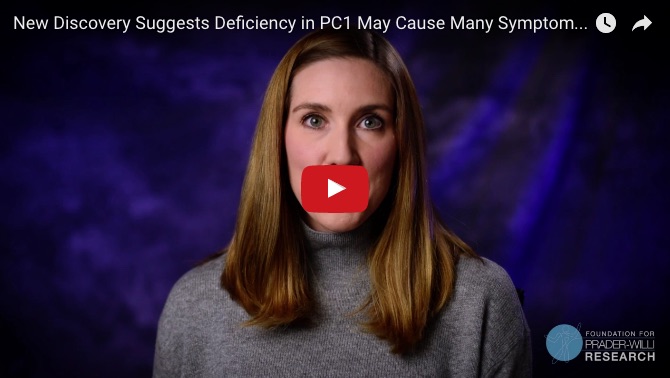Topics: Research
Family members and caretakers of individuals with PWS know that those individuals are often the friendliest people in a room, particularly when they are young children eager to give a hug. However, people with intellectual or developmental delays oft...
While most of us spent this last Thanksgiving morning prepping a feast, watching football or entertaining family, Rachael Fischer and Julie Foge rose before the sun to host more than 850 runners for the 2nd annual Harvesting Hope 5K race. The event t...
Topics: Stories of Hope
FPWR is excited to share a new discovery in Prader-Willi Syndrome! Columbia University Medical Center researchers Lisa Burnett, PhD, and Rudolph Leibel, PhD, have published a breakthrough discovery in the Journal of Clinical Investigation that change...
Topics: Research
A special contribution by guest blogger Gwyn Spearman It starts with one SMALL step... That sums up our approach to dealing with our "new normal." We have taken small steps, toward big dreams, goals, hopes, and expectations for Ellie. First, we navig...
Topics: Stories of Hope
Any drug development process proceeds through several stages in order to produce a drug that is safe, efficacious, and has passed all regulatory requirements. The discovery phase converts what we have learned about the causes and the biology of the d...
Topics: Research
Sleep disturbances and daytime sleepiness severely impact the quality of life for many with PWS, as well as their parents and caregivers. Within the Global PWS Registry, about 50% of respondents report that their loved one suffers from excessive dayt...
Topics: Research
I’m a mom so you know my memory is full of as many holes as Swiss cheese. I can’t remember much of anything that took place more than 5 years ago. On particularly fine days, I may be lucky to remember something that was said within the past 5 minutes...
Topics: Stories of Hope
In contrast to many rare diseases that can be traced to a single gene, PWS involves a region of DNA that encompasses numerous genes. A lot of PWS research is centered around trying to connect the dots between the genes in the PWS region and the actua...
Topics: Research















